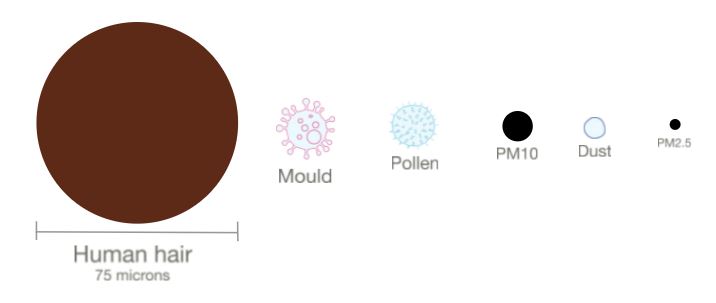Solving air pollution is within our reach
Kings College's Dr Frank J Kelly discusses why we require better evidence around what works in order to solve the issue of air pollution.
Health effects of air pollution
Our Communications Manager, Patrick Lee, explains how addressing the health effects of air pollution are crucial to tackling the climate crisis and improving global health.
Next week, as part of our health effects of air pollution programme, we will be taking a giant, breathing tree to COP26. Together with Asthma UK and the British Lung Foundation, we’ll be talking to visitors, policymakers and the media about the devastating effects air pollution has on people’s health. The question is: why is an organisation that focuses on urban health going to COP26?
Air pollution is a cocktail of dangerous gasses, including nitrogen dioxide (NO2) and particulate matter (PM). The smaller the particle, the further it goes into the lungs. Very fine particulate matter, like particulate matter 2.5 (which has a diameter of 2.5 microns or less), gets deepest into the lungs and carries toxic materials with it.

The health effects of air pollution are disproportionately felt by those who often contribute the least to the problem: children, older people and people with lung and heart conditions. And our new report – published by Asthma UK and British Lung Foundation as part of the Clear the Air campaign – shows that 85% of people living in areas with illegal levels of NO2 make up the poorest 20% of the UK population. A stark example of this is road traffic. The people who are most affected by the toxic fumes from traffic are often those who can’t afford a car.
This pattern is repeated globally. In 2018, the Lancet Commission on Pollution and Health said: “…in countries of every level of income, the health effects of air pollution are most frequent and more severe among the poor and the marginalised.”
We know the worst effects of air pollution are offset onto those who contribute the least to the problem and whose health is most vulnerable. But how exactly does air pollution affect health?
Obvious as it might seem, air pollution is invisible and, generally, awareness of poor air quality is low. A recent YouGov poll showed that only 11% of people in the UK think air pollution is a “very big problem”, while 44% think it’s “not a big problem at all”.
Meanwhile, our own research into awareness of air pollution among people living in Lambeth and Southwark showed that only 12% of people mentioned air pollution as a concern when unprompted and 52% of people couldn’t think of something that could help improve air quality.
COP26 is an opportunity for people whose health is affected by air pollution to have their voices heard. This is why the Clear the Air campaign is asking people to share their stories about the ways air pollution has affected their lives. You can share your own story here.
Air pollution is caused by burning fossil fuels and improving air quality has to be integrated with solutions to the climate crisis. Climate change will continue to increase the amount of pollution in the air by increasing temperatures, through forest fires and by releasing dust and sand into the atmosphere. Tragically, generations from now people will be breathing air that’s been polluted by fossil fuels that are burnt today.
The tree we’re taking to COP26 (which has been built with sustainable materials), symbolises the connection between the health effects of air pollution and the climate crisis. The ‘respira-tree’ will be exhibited in the Green Zone where we’ll talk to people about the connections between health and our environment and ask people to join us in calling on Government to take decisive action to improve air quality.
For example, vehicles contribute 80% of pollution at roadsides and are a major contributor to greenhouse gasses, so one of our report’s recommendations is for the expansion of clean air zones and for Government to ramp up annual funding for public transport, walking and cycling.
The London boroughs of Lambeth and Southwark are our home. They are where we invest in – and test – solutions to improve air quality.
COP26 presents a unique opportunity to demand action to improve air quality on a global stage. Pollution doesn’t respect borders. People living in our boroughs are affected by air pollution from other regions and even other countries. To create real change we need action at local, national and international levels.
We believe that by giving a platform for people affected by air pollution to share their stories, we can urge the Government to act and improve air quality to make the UK a healthier and fairer place to live, work and grow.
Programme Director Kate Langford shares why improving air quality to improve our health is such a fitting legacy from COVID-19.
Our insights into clean air solutions include an evidence review of interventions in inner cities as well as public perception research.
The more we know about air pollution in urban areas, the more we will be able to design effective solutions.